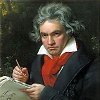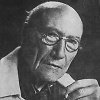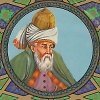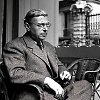Quote of the day
Aristotle was famous for knowing everything. He taught that the brain exists merely to cool the blood and is not involved in the process of thinking. This is true only of certain persons.
Erik von Kuehnelt-Leddihn

Born: July 31, 1909
Died: May 26, 1999 (aged 89)
Bio: Erik Maria Ritter von Kuehnelt-Leddihn was an Austrian Catholic nobleman and socio-political theorist.
Known for:
- Liberty or equality (1952)
- Leftism revisited (1990)
- The menace of the herd (1943)
- The intelligent American's guide to Europe (1979)


















